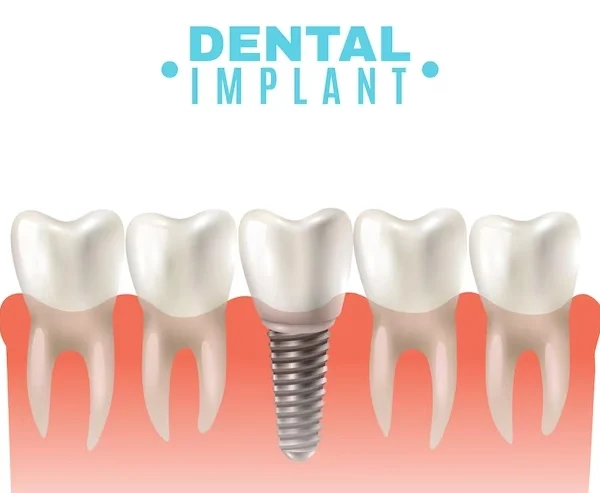
When to Replace a Broken Tooth with Dental Implants
A broken tooth can be a distressing dental issue, impacting both the appearance and functionality of your smile. Fortunately, Dental Implants have emerged as a reliable and long-lasting solution for replacing broken teeth.
In this article, we will explore when it is advisable to replace a broken tooth with dental implants, the benefits they offer, and the process involved in obtaining a new, natural-looking tooth.
Assessing the Severity of the Broken Tooth:
When a tooth is broken, the severity of the fracture plays a crucial role in determining the appropriate treatment. Minor chips or cracks can often be resolved through dental bonding or veneers. However, if the tooth is significantly damaged, such as a deep crack or fracture extending into the root, it may be necessary to extract the tooth and consider dental implant placement.
The Advantages of Dental Implants:
Dental implants are a highly effective and durable tooth replacement option. Unlike other alternatives, such as dentures or bridges, dental implants provide a permanent solution that closely resembles the look, feel, and function of natural teeth.
They offer several benefits, including improved chewing ability, enhanced aesthetics, preservation of jawbone structure, and long-term durability.
Preserving Jawbone Health:
When a tooth is lost or extracted, the underlying jawbone can gradually deteriorate over time due to lack of stimulation. Dental implants act as artificial tooth roots, stimulating the jawbone and preventing bone loss.
This preservation of jawbone health is crucial in maintaining facial structure, preventing a sunken appearance, and supporting the overall oral health.
Ideal Candidates for Dental Implants:
While dental implants are a highly successful tooth replacement option, not everyone may be an ideal candidate. Sufficient jawbone density is required to support the implant, and good overall oral health is essential.
Factors such as gum disease, smoking, and certain medical conditions may affect the success of implant placement.A thorough evaluation by a qualified dentist or oral surgeon is necessary to determine candidacy.
The Dental Implant Process:
The dental implant process involves several stages and requires collaboration between the dentist, oral surgeon, and dental laboratory. It begins with a comprehensive examination, including dental X-rays and 3D imaging, to assess the bone structure and determine the optimal placement of the implant. If necessary, bone grafting or other preparatory procedures may be performed to ensure a stable foundation for the implant.

Next, the dental implant, which is a titanium post, is surgically placed into the jawbone. Over a period of several months, the implant fuses with the bone through a process called osseointegration. Once this integration is complete, a custom-made crown or prosthetic tooth is attached to the implant, restoring the appearance and function of the broken tooth.
Post-Implant Care:
Proper care and maintenance are essential for the long-term success of dental implants. Regular dental check-ups, thorough oral hygiene practices, and avoiding habits like smoking contribute to the longevity of the implant. With diligent care, dental implants can last a lifetime, providing a reliable and natural-looking replacement for the broken tooth.
Aesthetic Considerations:
Dental implants are designed to blend seamlessly with your natural teeth, ensuring a natural and aesthetically pleasing smile. The color, shape, and size of the prosthetic tooth are customized to match the surrounding teeth, creating a harmonious and seamless appearance. This attention to detail helps to restore your smile and boost your confidence.
When a tooth is broken beyond repair, dental implants offer a reliable and long-lasting solution. They provide numerous advantages, including improved function, preservation of jawbone health, and a natural-looking appearance.
While not everyone may be an ideal candidate for dental implants, a consultation with a qualified dentist or oral surgeon can help determine suitability. By replacing a broken tooth with a dental implant, you can regain your smile’s beauty, functionality, and confidence for years to come.
When to Replace a Broken Tooth with Dental Implants at Dentsee Dental Clinic. Our expert team offers a comprehensive evaluation to determine if dental implants are the ideal solution for your broken tooth. Experience the benefits of durable, natural-looking replacements that improve chewing ability, preserve jawbone health, and enhance your overall oral health.
Schedule a consultation with our skilled professionals to explore the transformative power of dental implants and regain a confident, complete smile.
